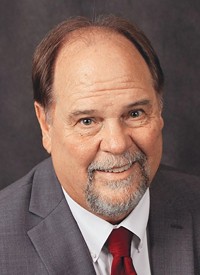Advertisement
Grab your lab coat. Let's get started
Welcome!
Welcome!
Create an account below to get 6 C&EN articles per month, receive newsletters and more - all free.
It seems this is your first time logging in online. Please enter the following information to continue.
As an ACS member you automatically get access to this site. All we need is few more details to create your reading experience.
Not you? Sign in with a different account.
Not you? Sign in with a different account.
ERROR 1
ERROR 1
ERROR 2
ERROR 2
ERROR 2
ERROR 2
ERROR 2
Password and Confirm password must match.
If you have an ACS member number, please enter it here so we can link this account to your membership. (optional)
ERROR 2
ACS values your privacy. By submitting your information, you are gaining access to C&EN and subscribing to our weekly newsletter. We use the information you provide to make your reading experience better, and we will never sell your data to third party members.
Policy
Constitution & Bylaws
Overseeing the rules and regulations for how ACS conducts business
by Corinne Marasco
May 12, 2008
| A version of this story appeared in
Volume 86, Issue 19
When the rules and regulations of the society or its divisions or local sections are in need of anything from a little tune-up to a complete overhaul, the Committee on Constitution & Bylaws (C&B) stands ready to act as guide every step of the way. At the recent ACS national meeting in New Orleans, the committee's long labors on the "Petition on Membership Categories & Requirements" along with a council vote helped pave the way for students to become full ACS members (C&EN, May 5, page 50). This action required extensive changes to the society's constitution and bylaws, which is no easy task. Rather, it is a complex process that requires meticulous attention to detail, and the Committee on Constitution & Bylaws is home to the experts.
ACS adopted its first constitution in 1876. It has since undergone five major revisions including the current one adopted in 1948, which is published—as currently amended—in "Bulletin 5" (www.acs.org/bulletin5). The constitution is supplemented with bylaws and regulations, so today the published document is titled "Charter, Constitution, Bylaws and Regulations of the American Chemical Society." C&B oversees changes to the constitution and bylaws. The regulations are under the purview of the ACS Board of Directors.
C&B, which was formed in 1948, currently consists of 16 members and six associate members. The committee is one of five standing committees of the ACS Council, which means that its members must be councilors. Among C&B's official duties are to interpret the constitution and bylaws; act for council in approving revisions and amendments of the bylaws of local sections, international chemical sciences chapters, and divisions; and determine that proposed articles of incorporation for local sections and divisions are consistent with the society's constitution and bylaws.
Chair
Ray A. Dickie, Ford Motor Co. (retired)
Committee Website
Membership
16 members, six associates, and one ACS staff liaison
Classification
Standing Committee of the Council
Subcommittees
C&B has five subcommittees, each of which does preliminary reviews of petitions to amend the society's rules and regulations.
Inception
Formed under the ACS constitution of 1948.
The amendment process brings C&B members into contact with all areas of ACS governance. Because of this, "C&B is a good choice for a new councilor who wants to learn about how ACS works," says 2008 C&B Chair Ray A. Dickie. "It also provides an opportunity for more experienced councilors who want to put their experience and knowledge about governance to work for the society."
The committee is perhaps best known for its work in reviewing petitions to change the constitution and bylaws and making sure that the changes are legal and consistent with the society's governing documents. C&B helps determine how the governing documents would need to be modified to accommodate the requested changes. It then designates one committee of ACS as having primary substantive responsibility for studying a petition and frequently sends it to other relevant committees for feedback and review. All petitions must contain a statement from the Society Committee on Budget & Finance regarding the financial impact of the proposed changes on ACS. The petition must also have an explanation from the petitioners about why it is being submitted.
In addition, C&B makes sure that petitions are explained clearly and accurately and that they will accomplish the petitioners' goals. Any petition to amend the bylaws requires a two-thirds vote of council for approval; the board of directors then confirms or rejects each amendment within 90 days of the council meeting. Amendments to the society's constitution require first a majority vote by council and then approval by two-thirds majority of the membership.
During ACS national meetings, C&B meets all day on Sunday and on Wednesday afternoon after each council meeting. Throughout the year, the committee works primarily through its subcommittees, which are formed as needed to handle the preliminary review of petitions and amendments to local section and division bylaws and such other matters as may come before the committee.
Committee members are expected to be neutral about petitions, but they influence the outcome of proposed changes to the society's rules and regulations with their attention to detail. Although it's necessary to be a councilor to be on the committee, it's certainly not necessary to be a lawyer. Good editorial skills, knowledge of the society's governance structure, and an interest in clarifying proposed bylaw and other changes are assets for C&B members.





Join the conversation
Contact the reporter
Submit a Letter to the Editor for publication
Engage with us on Twitter